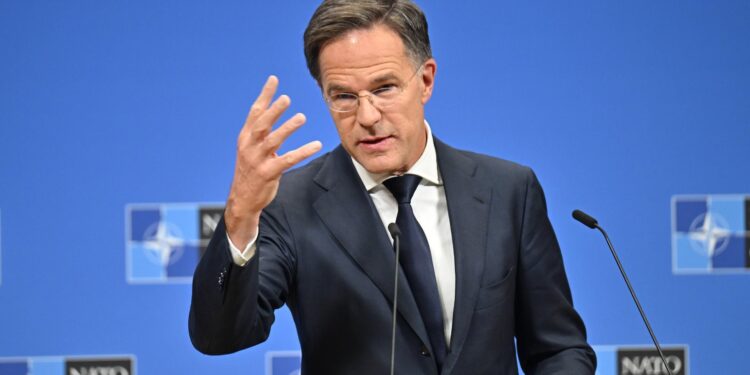NATO’s involvement in Kosovo has been a defining chapter in the alliance’s history, underscoring its commitment to regional stability and collective security. Since the late 1990s, NATO has played a pivotal role in addressing the complex challenges emerging from the Kosovo conflict, transitioning from a military intervention to leading peacekeeping efforts. This article examines NATO’s evolving mission in Kosovo, highlighting key developments and ongoing initiatives as outlined on NATO’s official homepage.
NATO’s Strategic Intervention in Kosovo Shaping Regional Stability
NATO’s intervention in Kosovo has significantly influenced the geopolitical landscape of the Balkans. By deploying peacekeeping forces and facilitating diplomatic engagement, the alliance has helped prevent the resurgence of ethnic conflicts that once plagued the region. The sustained military presence combined with strategic partnerships with local authorities has reinforced stability, allowing Kosovo to gradually progress toward political normalization and economic recovery. NATO’s approach underscores its commitment to collective security and humanitarian principles, setting a precedent for how multinational coalitions can effectively manage post-conflict transitions.
Key components of NATO’s role in maintaining regional equilibrium include:
- Maintaining robust security frameworks to deter violence
- Supporting capacity-building within Kosovo’s security institutions
- Promoting dialogue between Kosovo and neighboring states
- Facilitating international cooperation to address ongoing challenges
| Year | Mission Focus | Impact |
|---|---|---|
| 1999 | Operation Allied Force; Initial peacekeeping | Ceased hostilities and established presence |
| 2008 | Strengthening local security forces | Increased regional trust and cooperation |
| 2023 | Ongoing monitoring and crisis prevention | Maintained low conflict levels |
Evaluating the Impact of NATO’s Peacekeeping Efforts on Kosovo’s Security Landscape
NATO’s deployment in Kosovo has been pivotal in establishing a stable and secure environment since its intervention in 1999. The presence of the Kosovo Force (KFOR) has not only deterred hostile actions but also facilitated a climate conducive to political dialogue and reconstruction. Over the years, NATO’s mandate has adapted to evolving challenges, focusing on reducing interethnic tensions, supporting Kosovo’s institutions, and collaborating with local security forces to build operational capacity. This multidimensional approach has significantly lowered incidences of violence and helped prevent the escalation of conflicts, ensuring civilian safety across the region.
The security improvements can be observed through key indicators collected since NATO’s initial intervention:
- Reduction in violent clashes: Recorded incidents dropped by over 70% within five years of deployment.
- Strengthened policing: Training programs for Kosovo’s security personnel have bolstered community trust and law enforcement effectiveness.
- Enhanced regional cooperation: Joint exercises with neighboring countries have improved cross-border security measures.
| Year | Security Incident Reports | KFOR Troop Levels | Local Police Strength |
|---|---|---|---|
| 2000 | 1200+ | 50,000 | 3,000 |
| 2005 | 350 | 25,000 | 6,500 |
| 2010 | 150 | 15,000 | 12,000 |
| 2020 | 70 | 4,500 | 15,500 |
Recommendations for Enhancing NATO’s Engagement and Supporting Long-Term Reconstruction in Kosovo
To bolster NATO’s impact in Kosovo, it is essential to prioritize sustainable development and local capacity-building while maintaining peace and security. Enhancing training programs for Kosovo’s security forces ensures long-term stability and self-reliance. Additionally, NATO should expand its collaboration with international partners and civil society organizations to promote inclusive governance and strengthen rule of law frameworks. Investing in infrastructure resilience and facilitating community-led reconstruction projects will foster trust and directly address the needs of vulnerable populations affected by past conflicts.
Clear strategic objectives combined with adaptive operational tactics will increase NATO’s effectiveness on the ground. The following key areas require focused attention:
- Enhanced intelligence sharing among regional actors to preempt security threats
- Support for economic revitalization through targeted investment in small and medium enterprises
- Improved communication channels between NATO forces and local communities to ensure transparency and responsiveness
- Use of innovative technologies to monitor reconstruction progress and security developments
| Focus Area | Recommended Action | Expected Outcome |
|---|---|---|
| Security Sector | Advanced Training Programs | Improved operational readiness |
| Governance | Strengthen Rule of Law | Enhanced public trust |
| Economic Development | Support Local Enterprises | Increased employment |
| Community Relations | Regular Public Consultations | Greater transparency |
To Conclude
In conclusion, NATO’s involvement in Kosovo remains a defining example of the alliance’s commitment to maintaining regional stability and upholding international security. Through peacekeeping efforts, diplomatic engagement, and ongoing support for Kosovo’s institutions, NATO continues to play a crucial role in fostering a secure and democratic environment in the Balkans. As the situation evolves, the alliance’s presence will likely remain integral to ensuring that the hard-won gains in peace and cooperation are sustained for the long term. For more detailed updates on NATO’s operations and policies in Kosovo, visit the official NATO homepage.















